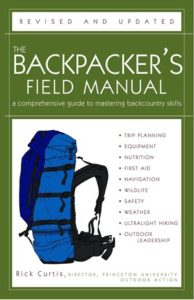The Washington State Court of Appeals issued a ruling on a product liability case, Monika Johnson vs Recreational Equipment Incorporated. This case is an interesting one to follow because it opens up the question of product liability to who sells the product not just who manufactures the product. A more detailed review of the state of product liability for equipment and “seller versus manufacturer” can be found in the Adventure & Recreation Law Center legal case—Are you offering a Product or a Service? It Makes a BIG Difference.
The Johnson vs Recreational Equipment Incorporated case is interesting particularly in light of the practice of large outdoor retailers selling products manufactured by other companies under their own ‘store brand.’
The Court of Appeals ruling was released on February 7, 2011. In a completely unrelated and tragic end to this story, Monika Johnson, who brought the suit, died in an avalanche in Snoqualmie Pass, Washington on February 1.
The following are excerpts from the court’s decision. The full decision of the Court of Appeals is available online. Other court documents relating to the case can be found at Washington Courts (search for 65463 as the document number).
In November 2007, Monika Johnson was riding her bicycle along a downtown Seattle sidewalk when the front carbon fiber fork of the bicycle, which attaches the bicycle’s front wheel to its frame, “sheared from the steer tube suddenly and without warning.” Clerk’s Papers (CP) at 57. The fork and front wheel detached from the frame of the bicycle, and Johnson fell face first onto the sidewalk, sustaining serious injuries.
Johnson brought an action against REI pursuant to the WPLA [Washington product liability act], alleging that her injuries were caused by a defect in the carbon fiber fork. Both the bicycle and the carbon fiber fork, although not manufactured by REI, were marketed under REI’s brand name, Novara. Johnson had purchased the Novara brand bicycle from REI in 2002. In 2005, she had taken the bicycle to REI for repairs following a collision with a car door. The Novara carbon fiber fork that fractured in November 2007 was installed on the bicycle during those 2005 repairs.
Johnson did not name the manufacturer of the fork, Aprebic Industry Company, Ltd., as a defendant in the action. REI filed a motion for partial summary judgment, seeking a ruling that it was entitled to ask the jury to allocate fault to Aprebic pursuant to Washington’s comparative fault system, set forth in chapter 4.22 RCW, or, in the alternative, requesting leave to file a third party complaint against Aprebic. In response, Johnson filed a motion for partial summary judgment, asserting that REI was strictly liable for her injuries.
[According to the WPLA Statute]
The limited circumstances in which a product seller assumes the liability of a manufacturer are set forth in RCW 7.70.040(2), which provides:
(2) A product seller, other than a manufacturer, shall have the liability of a manufacturer to the claimant if:
(a) No solvent manufacturer who would be liable to the claimant is subject to service of process under the laws of the claimant’s domicile or the state of Washington; or
(b) The court determines that it is highly probable that the claimant would be unable to enforce a judgment against any manufacturer; or
(c) The product seller is a controlled subsidiary of a manufacturer, or the manufacturer is a controlled subsidiary of the product seller; or
(d) The product seller provided the plans or specifications for the manufacture or preparation of the product and such plans or specifications were a proximate cause of the defect in the product; or
(e) The product was marketed under a trade name or brand name of the product seller.
Thus, by imposing liability on sellers of branded products for manufacturing defects—which, inevitably, are caused by acts of the manufacturer—our legislature created a statutory form of vicarious liability that enables the claimant injured by a defectively manufactured product to recover fully from the product seller where the seller branded the product as its own.
Johnson submitted to the trial court evidence—in the form of [expert witness] declaration—that the fork fractured due to insufficient carbon fiber layering. This evidence itself supports the conclusion that the fork “deviated in some material way from the design specifications or performance standards of the manufacturer,” RCW 7.72.030(2)(a), as no conceivable performance standard would call for the manufacture of a carbon fiber fork that fractures as Johnson’s did.
Court Conclusions
The Washington product liability act (WPLA), chapter 7.72 RCW, sets forth a statutory form of vicarious liability whereby a product seller assumes the liability of a manufacturer where a product is marketed under the seller’s brand name. Because permitting the product seller to attribute fault to the actual manufacturer would abrogate this provision of the WPLA, principles of comparative fault do not apply, notwithstanding the possibility that statutory contribution may thereby be precluded. Such a result is not in contravention of our state’s statutory comparative fault system, as commercial entities can themselves contract to allocate liability where the WPLA’s vicarious liability provision applies. Accordingly, we affirm the trial court’s ruling that Recreational Equipment, Inc. (REI) is not entitled to seek to allocate fault to the manufacturer of the defective product that REI branded as its own. We also conclude that the trial court erred neither by finding REI strictly liable for the injuries caused by the defective product nor by ruling that any third party claim by REI against the manufacturer would be severed for trial.


